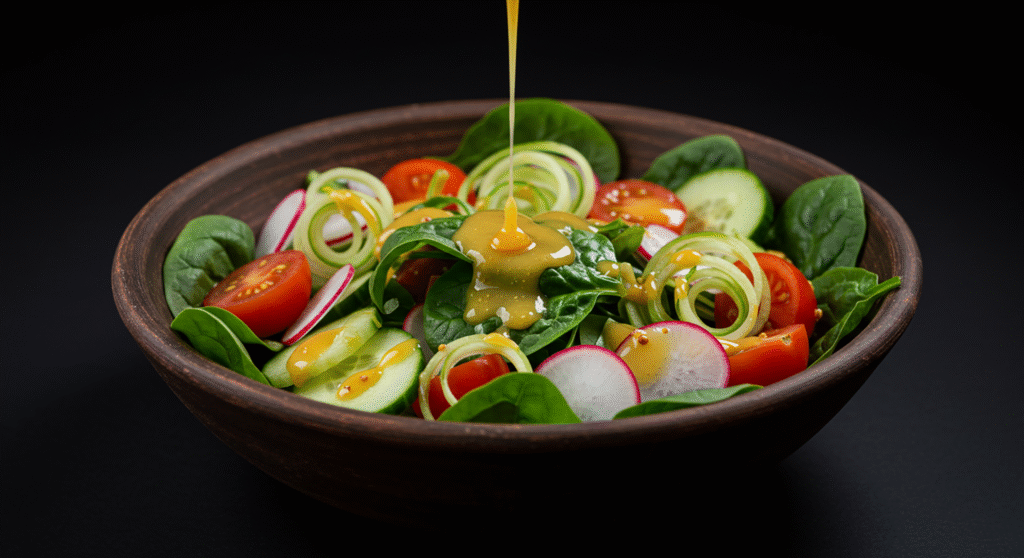Did you know that some foods can be real enemies of your teeth? Discovering what foods damage teeth is the first step to protect your smile and avoid costly dental treatments. Let me explain which ones you should avoid and how certain foods can naturally strengthen your oral health.
Tooth decay remains one of the most common diseases affecting both children and adults. What many people don’t understand is how certain foods become the perfect fuel for bacteria that cause these lesions in our teeth.
Why do certain foods damage teeth?
A cariogenic diet is characterized by including soft and sticky foods that easily adhere to teeth, creating the perfect environment for cavity development.
Understanding what foods damage teeth allows you to make smarter decisions about your daily nutrition. These foods provide sugars and carbohydrates that bacteria in your mouth ferment, producing acids that directly attack tooth enamel.
The frequency of consumption is just as important as the quantity. Consuming sugary foods several times a day keeps your mouth in a constant acidic state, preventing saliva from naturally neutralizing and repairing the enamel.
The worst foods that damage teeth
Sticky candies and sweets. Gum, candies, nougats, and jams are especially problematic because they stick to teeth and remain in prolonged contact with enamel.
Sugary drinks and sodas. Carbonated beverages top the list of what foods damage teeth due to their high sugar content and ability to reach hard-to-access places in your mouth. Additionally, they weaken tooth enamel, making it more susceptible to stains and deterioration.
Refined carbohydrates. Foods like sugary cereals, white bread, pasta, and bakery products quickly break down into simple sugars that feed cavity-causing bacteria.
Processed snacks. Potato chips, crackers, and similar products not only contain hidden sugars but their texture allows them to stick to teeth, especially back molars.
The frequency of consumption multiplies the risk. Consuming these foods occasionally is less harmful than doing so several times a day, as each exposure restarts the acid production process in your mouth.

Foods that strengthen and protect your teeth
Fortunately, there are also foods that can help maintain a healthy mouth and counteract the effects of those foods that damage teeth.
Fiber-rich vegetables. Vegetables like celery, carrots, and broccoli act as “natural brushes” that help clean teeth while you chew. They also stimulate saliva production, your natural defense against cavities.
Fresh fruits. Although they contain natural sugars, fruits like apples, pears, and strawberries provide fiber and water that help clean teeth. Their vitamin C content also strengthens gums.
Sugar-free dairy products. Milk, cheese, and plain yogurt are rich in calcium and phosphorus, essential minerals for strengthening tooth enamel. Cheese, in particular, can neutralize acids in your mouth.
Nuts. Almonds, walnuts, and other nuts (without added sugar) provide calcium, phosphorus, and proteins that benefit dental health.
Water. Water is your best ally against cavities. It helps remove food debris, keeps your mouth hydrated, and allows saliva to function efficiently.
How to create eating habits that protect your smile
Smart timing. If you’re going to consume foods that damage teeth, do so during main meals rather than as snacks between meals. This limits acid exposure time.
Rinse with water after consuming sugary or acidic foods. This helps dilute acids and speed their removal from your mouth.
Wait before brushing. After consuming acidic foods or drinks, wait at least 30-60 minutes before brushing your teeth. Immediate brushing can damage temporarily weakened enamel.
Combine foods intelligently. Accompany problematic foods with protective options. For example, if you eat something sweet, pair it with cheese or nuts.
The importance of nutritional balance
A healthy diet doesn’t mean completely eliminating all culinary pleasures, but finding a balance that benefits both your general health and oral health.
A diet rich in fiber, quality proteins, healthy fats, and complex carbohydrates not only nourishes your body but also provides the necessary nutrients to maintain strong teeth and gums.
Minerals like calcium, phosphorus, magnesium, and vitamins A, C, and D play crucial roles in dental health. A varied and balanced diet generally provides these essential nutrients.
Warning signs: when your diet is affecting your teeth
Tooth sensitivity when consuming cold, hot, or sweet foods may indicate that enamel is weakening due to an inadequate diet.
Persistent bad breath can be a sign of bacterial accumulation caused by sugary food residues.
Stains or discoloration on teeth may indicate enamel damage from frequent acid exposure.
Pain when chewing or spontaneous discomfort may suggest cavity development related to inadequate eating habits.
Your personalized plan for a healthy smile
Prevention is always more effective and economical than treatment. Gradually modifying your eating habits can make a significant difference in your oral health.
If you’re already experiencing symptoms like tooth sensitivity or notice changes in your teeth, it’s important to seek professional evaluation. Early diagnosis can prevent more serious and costly problems.
A personalized evaluation can help you identify specific risk factors in your diet and develop strategies adapted to your lifestyle to maintain a healthy smile.
Contact me via WhatsApp or complete our contact form for a consultation where we can evaluate how your diet is affecting your dental health and design a personalized preventive plan.
The information in this article is educational and does not replace a personalized consultation. Each person has unique nutritional and dental needs.




